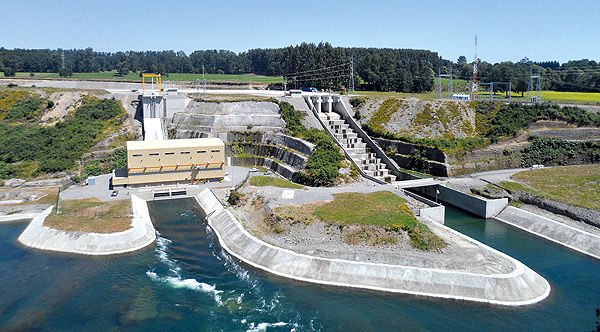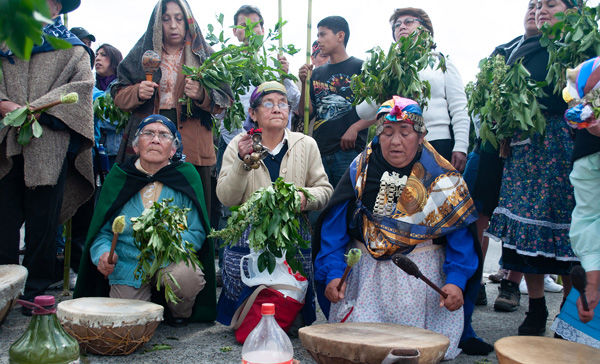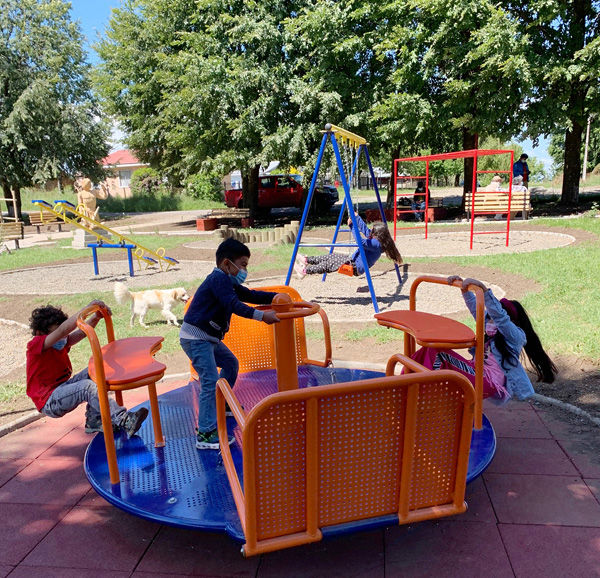Update from 19 September 2024:
Chile is a country with natural, good conditions for the development of renewable energy. But there are many considerations to take, both to nature and people.
Top video: Shutterstock
Power development and relationship building go hand in hand
A sacred tree presented challenges for Statkraft's development of new hydropower in Chile, but thanks to development of good relations with the local communities and respect for Mapuche culture, construction of the new run-of-river power plant is now halfway completed.
Geography and natural resources make Chile an ideal country for renewable power production, not least for hydropower, and to achieve its ambitious climate goals, Chile needs an energy transition.
Statkraft is contributing to that transition with three hydropower plants already in operation, and is planning to provide even more renewable energy in this long and narrow South American country.

The construction of the new Los Lagos run-of-river power plant on the Pilmaiquén River in the province of Osorno began in 2019, and the plant will be completed in the second half of 2023.
However, having a new hydropower plant as a neighbour is not always welcomed by local communities, so the development work must be carried out with respect, caution and good communication with the local population affected.
Chile is a nation steeped in strong cultural and spiritual traditions, and many indigenous communities live in the areas where natural resources are found.
Where nature is sacred
The Los Lagos project has received all the necessary environmental approvals from the Chilean authorities, but the Statkraft team realised early on that extra consideration and attention had to be given to the indigenous people in the area – and not least to the evergreen Canelo trees that are considered sacred in Mapuche culture. The Mapuche are the largest indigenous group in present-day Chile.
"The Mapuche people in Los Lagos use the leaves from the Canelo trees in ceremonies and for medicinal purposes," explains Statkraft's country manager for Chile, María Teresa González.

According to the UN's REDD programme, which aims to reduce emissions from deforestation and counteract forest degradation in developing countries, these special Canelo trees in Chile are considered a valuable biological resource of great importance to the local communities and Mapuche culture.
To the Mapuche people, nature is sacred, and they do not believe humans are superior to the nature that surrounds them.
The Statkraft team quickly became aware of this when they started building the new hydropower plant in an area surrounded by indigenous communities and abundant forests.
"Statkraft was moving in and using nature to create electric power, and therefore having to make certain changes to the landscape and removing some vegetation to build the facility. This meant that we needed to gain a good understanding of the Mapuche people's beliefs and traditions. So our team received cultural training, and we set out to build strong relationships with the local communities," González explains.
"It's exciting to visit Los Lagos today and talk to the locals and work with them to ensure new planting of forests in the areas affected by the power development," she says.

With 19 per cent of the country covered by forest, proper nature management and forest conservation are important not only for cultural reasons; they are also important for meeting Chile's climate ambitions to be carbon neutral by 2050.
Flower on the Canelo tree, which is sacred to the Mapuche people of Chile.
For Chile's largest indigenous group, the Mapuche, the Canelo tree is sacred. The leaves are used in ceremonies and for medicine.
New opportunities for local communities
Statkraft has a stated and strong commitment to ethical behaviour and sustainable development. When the company establishes itself in new areas, it must adopt a holistic approach and have a plan to bring new development opportunities to people in the local areas affected.
For Los Lagos, this entails several social investment programmes designed to have a positive impact on the local population and their livelihoods, in addition to taking into account culture and traditions.
One initiative is to encourage more tourists to visit the area and provide new sources of income for the local communities. Other plans involve improving the local infrastructure.
The company also supports technical training with a view to employing local workers in the hydropower plant.

Another practical example of the Statkraft teams’ community work in Chile is the newly established Plaza de Pilmaiquén recreational park, which has been developed in collaboration with the local community in Pilmaiquén in the south of the country. With its local plants and playgrounds for children, the park has become an open and inviting public meeting place.
Creating shared value is key
"When we enter a new area to create renewable energy from nature, we do so with respect and with the aim of maintaining or improving the standard of living in the surrounding communities, whether it be through afforestation, education or creating new job opportunities," says María Teresa González.
"Statkraft always aims to ensure that shared value is created, no matter where we operate."
